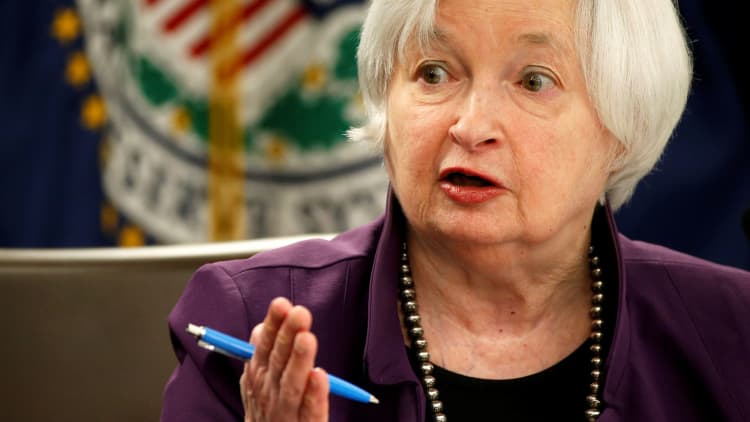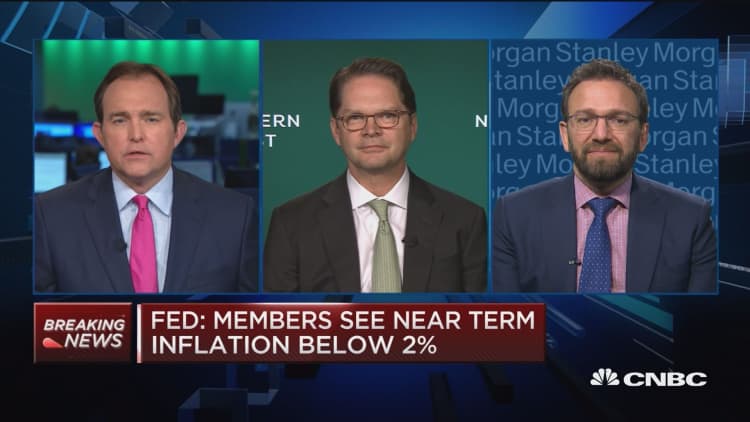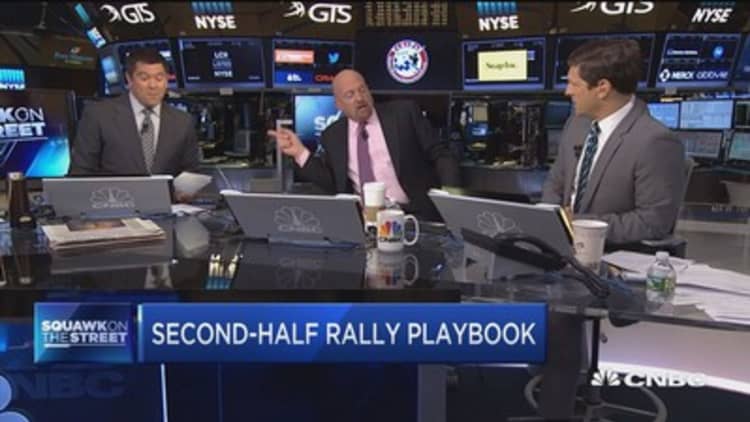
Several Federal Reserve officials are worried about rising risks in the U.S. stock market, according to minutes released Wednesday from June's Federal Open Market Committee meeting.
"A few participants expressed concern that subdued market volatility, coupled with a low equity premium, could lead to a buildup of risks to financial stability," according to minutes.
Some policymakers also suggested investors may be too comfortable with buying risky assets like stocks and some officials believed "equity prices were high when judged against standard valuation measures," according to the meeting notes.
U.S. stocks have surged to all-time highs as the bull market stretches past its 8th year on the back of low interest rates from the central bank. Meanwhile investors grow increasingly complacent. The CBOE Volatility Index (.VIX) fell in early June to 9.37, its lowest since Dec. 27, 1993. The VIX traded near 11 Wednesday.
Fed officials also appeared concerned the central bank's attempts to raise interest rates — theoretically making it more expensive to borrow money — were not having an effect on financial markets. Corporate and Treasury yields have decreased this year even as the Fed hikes rates.

"According to some measures, financial conditions had eased even as the Committee reduced policy accommodation and market participants continued to expect further steps to tighten monetary policy," the minutes said.
Possible reasons for the decline in yields could be expectations of sluggish economic growth and the "elevated level of the Federal Reserve's longer-term asset holdings."
Many on Wall Street have worried easy monetary policy has artificially supported stock market gains and left central banks with little ability to stimulate the economy in case of another recession.
Now, the Fed is leading major central banks in tightening monetary policy. The Fed raised its benchmark interest rate in June for the fourth time since December 2015 and said it planned to begin reducing its $4.5 trillion balance sheet this year.
Last week, Bank of America Merrill Lynch's chief investment strategist, Michael Hartnett, said in a note that "central banks have exacerbated inequality" and that it is "no longer politically acceptable to stoke [the] Wall St. bubble."
The Federal Reserve and the European Central Bank are "now tightening to make Wall St. poorer," likely setting up for a "big top" in stock markets this fall, Hartnett said.
Watch: Cramer on Fed rate hikes



